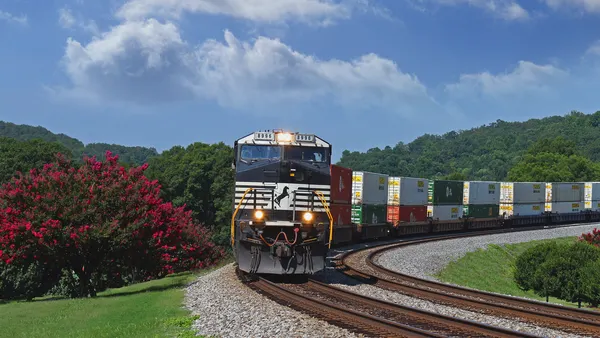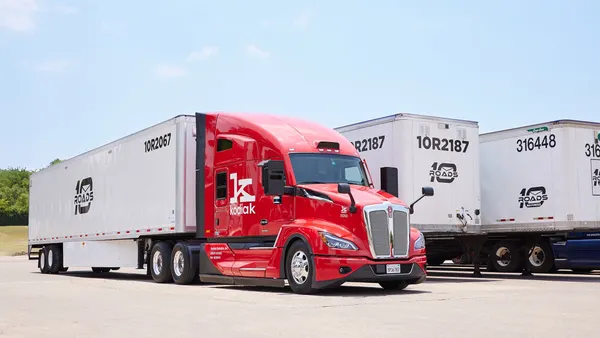Dive Brief:
- Lamb Weston's move to pass freight costs helped it ease the sting of its latest quarterly results, which featured logistical challenges and labor shortfalls at its factories, executives said on an earnings call.
- "Price mix was up 6% as we realized benefits from our previously announced pricing actions in each of our core segments," CEO Tom Werner said. Executives said last year the company hiked the rates it charges customers for product delivery to recover transportation costs.
- Volume growth was tempered by supply chain constraints, including port disruptions and delays in the availability of key materials, Senior Vice President and CFO Bernadette Madarieta said. The company also grappled with staffing shortfalls "which impacted production run rates and throughput at our processing plants."
Dive Insight:
Lamb Weston's sales were up in the quarter, but its income declined as it navigated supply chain holdups, labor issues and inflation. It's a battle companies across industries are facing:A Gartner survey last year found that nearly three in four CFOs said lower profitability is their top concern due to input price inflation.
To combat cost increases, companies are resorting to pushing costs further down the supply chain. Nestlé increased pricing in its third quarter in the face of inflation and supply chain challenges. Butter prices have surged as producers battle labor shortfalls and higher packaging material costs.
Lamb Weston is placing a strong focus on transportation costs to fight input cost inflation. That means increasing freight rates and adjusting them more often to reflect market conditions.
"Historically, we only adjusted these rates once or twice a year," Madarieta said.
Lamb Weston is relying on trucking more than it would like, Madarieta said. Rail freight would allow the company to meet service obligations at lower costs. At the same time, LTL and TL rates are at sky-high levels, driven in part by capacity constraints and carrier rate increases. But according to Madarieta, Lamb Weston continues to remain competitive despite the price hikes and it isn't "seeing a lot of our customers switching freight lanes or that sort of thing."
While the company is profiting from charging higher prices for freight, wider supply chain issues remain a problem.
A lack of employees and COVID-19-related "absenteeism" has led to lost production days and unplanned downtimes across its manufacturing network, according to Madarieta. The company hopes by the spring it will have its staffing issues "squared away, but the labor market is tough," Werner said.
Logistical challenges, meanwhile, are particularly hurting Lamb Weston's global segment. Export sales volumes declined due to limited shipping container availability and ocean freight disruptions, according to the company's earnings release.
"We expect these production and logistic challenges, as well as the near-term impact of COVID variants to limit our volume growth through at least the end of fiscal 2022," Madarieta said.















